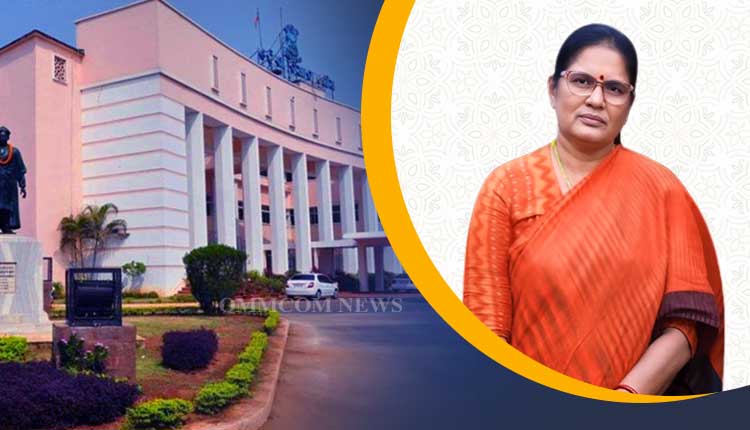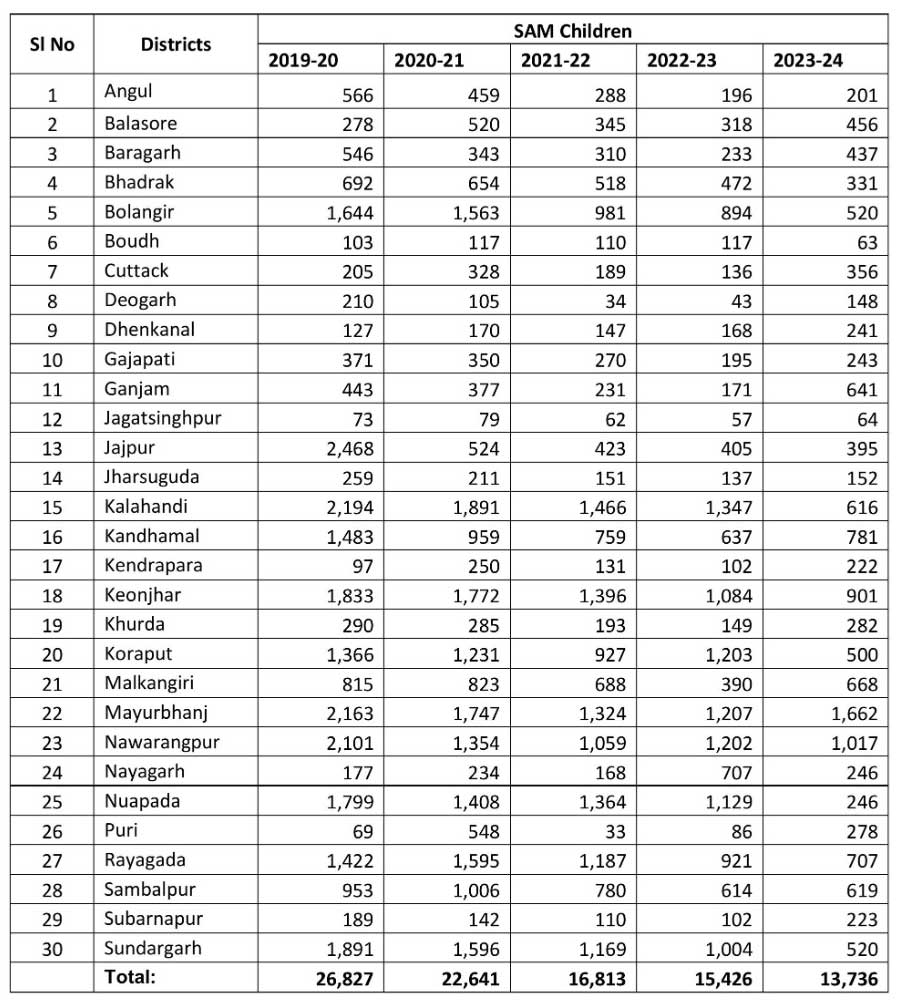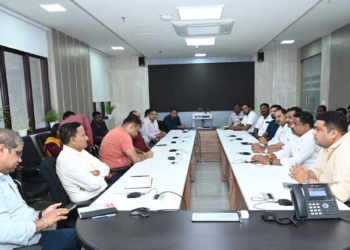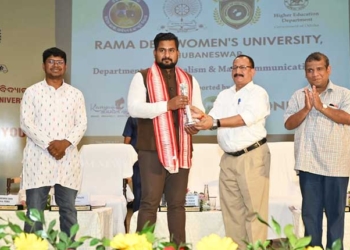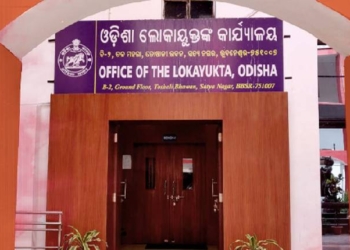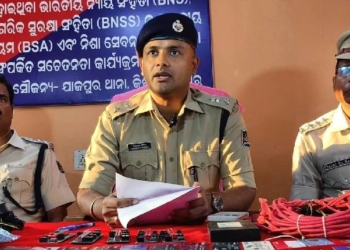Bhubaneswar: A total of 95,443 children in Odisha have been suffering from Severe Acute Malnutrition (SAM) over the past five years, according to information provided by the Women & Child Development Minister Pravati Parida in the state assembly on Saturday.
In response to a question from Jeypore MLA and senior Congress leader Tara Prasad Bahinipati, Minister Parida stated that in 2019-20, a total of 26,827 children in Odisha were suffering from SAM. In 2020-21, the number was 22,641 children; in 2021-22, 16,813 children; in 2022-23, 15,426 children; and in 2023-24, 13,736 children were suffering from SAM.
Here is the district-wise data for the last 5 years regarding children suffering from Severe Acute Malnutrition (SAM) below:
State Government’s Efforts to Combat Malnutrition
Minister Parida further outlined the steps being taken by the state government to combat child malnutrition.
“The state government remains committed to controlling malnutrition across Odisha,” she stated. “Under the Supplementary Nutrition Scheme, children aged 6 months to 6 years who are registered at Anganwadi centers receive nutritious food for 25 days each month, totaling 300 days per year. Children aged 6 months to 3 years are given a variety of foods, including chhatua, eggs, laddu, and dry rations. For children who do not eat eggs, additional laddus are provided. Meanwhile, children aged 3 to 6 years are served hot cooked meals and morning water at Anganwadi centers.”
In addition, the government has implemented the Mukhymantri Sampruna Pushti Yojana (MSPY) to specifically address the needs of severely acute malnourished (SAM) children. Children between 6 months and 5 years are given 100 grams of Augmented Chhatua and one egg daily for 112 continuous days.
Additionally, severely underweight (SUW) and moderately acute malnourished (MAM) children are provided with a gram flour mixture, banana, and egg daily for 75 continuous days.
The “Pada Pushti Karyakram” (PPK), also known as “Pada Pushti Yojana,” is another key initiative under which children aged 3-6 years living in remote villages—who are unable to attend Anganwadi centers—are provided with both breakfast and hot cooked meals in their local villages.
These initiatives are part of the government’s ongoing efforts to fight child malnutrition and improve the overall nutritional status of children in the state.




